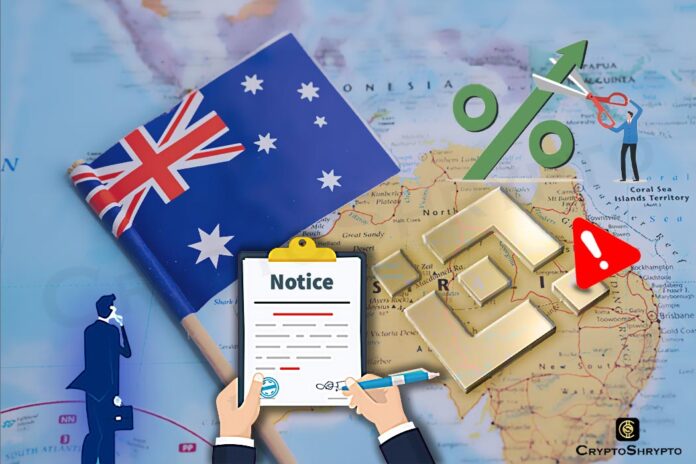Ben Rose, the head of Binance Australia, stated that the exchange was “split out” from the nation’s financial system in May with less than a day’s notice from its banking partner.
The team at Binance Australia was abruptly informed that it would be “cut off” from Australia’s financial system in the middle of the night. The regional manager of the exchange has alleged that there was no warning, consultation, or remedy beforehand.
On May 18, Binance Australia declared the suspension of its dollar services because Cuscal, a partner financial institutions and payments provider of Zepto, instructed Zepto to discontinue supporting Binance.
On June 26, Ben Rose, regional manager for Binance, informed a crowd at the Australian Blockchain Week that the change had an effect on about 1 million Australian clients.
At 11:30 p.m., we got a 24-hour notice of debanking, which was then reduced to a 12-hour notice, and as a result, we lost access to our financial services.
The explanations provided were not totally clear and didn’t appear very positive in the media, according to Rose. Previously, a Cuscal representative refused to speak to the media on Binance Australia-related issues but did mention cryptocurrency-related “scams and fraud.”
Users of Binance were first concerned about the incomplete information, but “that tone shifted pretty quickly” once it became evident that the larger local crypto business was “impacted by these financial changes,” according to Rose.
The Big Four bank Westpac announced it would start testing payments to cryptocurrency exchanges on the exact same day that Cuscal left Binance. A big Australian bank called Commonwealth Bank began implementing similar crypto-related transaction restrictions less than a month later.
After his on-stage meeting, Rose refused to give any additional details about Binance Australia’s seek for an alternative third-party payment service because talks were still in progress.
Though Rose acknowledged that there are other service providers, Cuscal “bank makes up the majority of this industry.”
The Australian cryptocurrency market heavily depends on crypto-friendly payment processors like Monoova, Zai, and Zepto, all of which have agreements with Cuscal to gain access to the country’s banking infrastructure.
Peer cryptocurrency exchanges like BTC Markets, Kraken Australia, CoinJar, Independent Reserve, and numerous more crypto-related fintech companies use custodial-backed payment rails.
Rose asserted on stage that losing their financial partner “hasn’t really had any effect on the business.” Users of Binance are “using other methods,” he continued, most likely making payments and deposits using bank cards that are still accepted on the exchange.
Rose also emphasised the necessity of collaborating with authorities and financial institutions as well as the potential for establishing “sensible licencing” for the sector.
Due to the fact that jurisdictions all over the world are currently progressing, Rose stated, “We would consider for Australia to take action quickly.”
“As a nation, we believe there is a window and a chance, but there is also potential danger if we don’t move rapidly on licensing.”




